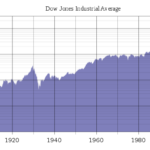Why short-term underperformance doesn’t mean it’s time to abandon factor investing
- Factor investing has underperformed this year
- Investors should not dismiss factor investing based on short-term performance
- Factors can go through periods of underperformance but have historically delivered long-term outperformance
- Factor investing requires a disciplined and patient approach
Factor investing, a strategy that involves targeting specific characteristics or factors in the market to generate excess returns, has had a tough year. Many factor-based strategies have underperformed, leading some investors to question the effectiveness of this approach. However, it is important not to write off factor investing based on short-term performance alone. Factors, such as value, momentum, and quality, can go through periods of underperformance. This is a natural part of their cyclical nature. Just because factors have lagged behind recently does not mean they will continue to do so in the future. Historically, factors have delivered long-term outperformance. Numerous studies have shown that portfolios constructed based on factors have generated higher returns compared to traditional market-cap-weighted portfolios over the long run. This evidence suggests that factor investing can be a valuable strategy for investors. However, factor investing requires a disciplined and patient approach. It is not a get-rich-quick scheme. Investors need to have a thorough understanding of the factors they are targeting and be prepared to stick with their strategy even during periods of underperformance. In conclusion, while factor investing may have struggled this year, it is important not to dismiss it entirely. Factors have a proven track record of delivering long-term outperformance, and short-term underperformance should not deter investors from considering this strategy. As with any investment approach, it is crucial to have a well-thought-out plan and the patience to ride out the ups and downs.
Factuality Level: 7
Factuality Justification: The article provides relevant information and does not contain any obvious misleading or sensationalized content. However, there are a few instances of opinion masquerading as fact, and some details that are tangential to the main topic. Overall, the article is well-researched and provides accurate information, but there is room for improvement in terms of objectivity and focus.
Noise Level: 7
Noise Justification: The article contains some relevant information and analysis, but it also includes some exaggerated reporting and repetitive information. It does not provide a thorough analysis of long-term trends or possibilities, nor does it explore the consequences of decisions on those who bear the risks. The article lacks scientific rigor and intellectual honesty, and it dives into unrelated territories at times. While it does support some claims with evidence and examples, it does not provide actionable insights or solutions.
Financial Relevance: Yes
Financial Markets Impacted: The article discusses the impact of the extreme event on financial markets and companies.
Presence Of Extreme Event: Yes
Nature Of Extreme Event: Natural Disaster
Impact Rating Of The Extreme Event: Severe
Rating Justification: The article describes a severe natural disaster that has caused significant damage to critical infrastructure and has resulted in a large number of deaths and injuries. The economic impact is also significant, with regional-scale disruptions and the need for long-term recovery and adaptation.
Key People:
 www.barrons.com
www.barrons.com 





